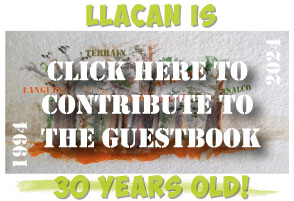 Presentation of the research unit
Presentation of the research unit
The research unit Langage, langues et cultures d’Afrique (“Languages and cultures of Africa”) (LLACAN, UMR 8135) was founded in 1994 and is affiliated to the French National Centre for Scientific Research (CNRS), the National Institute of Oriental Languages and Civilisations (INALCO) and the École Pratique des Hautes Études (EPHE). LLACAN is one of the research units that constitute the excellence cluster Empirical Foundations of Linguistics (Labex EFL). The research unit is also a member of the consortium CORLI (Corpus, Languages, Interaction) and the multidisciplinary Association of Scientific Interest for African Studies (GIS Etudes Africaines).
Click to see the languages studied at LLACAN:

LLACAN is organised around three interacting research themes: 1) Grammatical analysis and typology, 2) Comparison, typology and reconstruction and 3) Literature in African languages, literature theory and linguistic practices.
Our research is based on primary data collected during extended periods of immersion fieldwork in Africa. Our projects focus on the documentation and analysis of the linguistic and ethnolinguistic features of languages of Sub-Saharan Africa, many of which are endangered, without a writing tradition and little known, as well as the analysis of oral and written literature produced in local languages, allowing special access to the cultural background they convey.
Our research is embedded in the larger theoretical frameworks of comparative and historical linguistics, cognitive linguistics and typology. This enables us to contribute to the understanding of human language, culture and cognition. We also examine the relationships between African languages in terms of their historical development and genetic links as well as of contact-induced changes in languages of the same geographical zone.
The example of African languages enables us to lay the foundation for understanding the reasons and mechanisms of language change and language shift in general.



